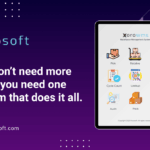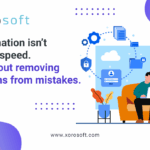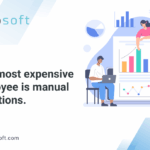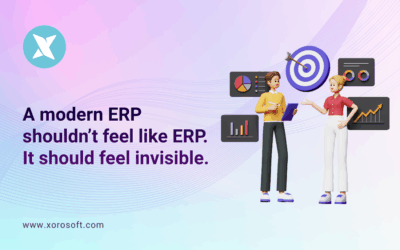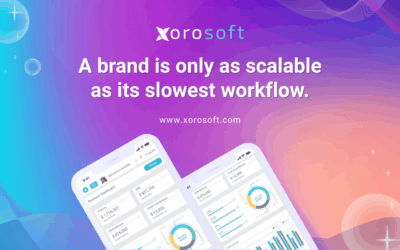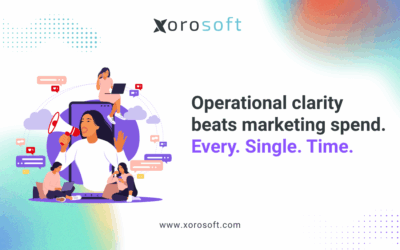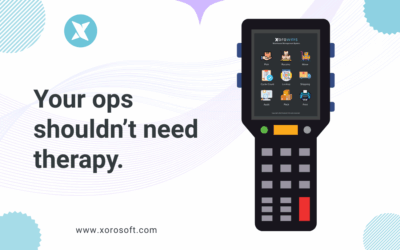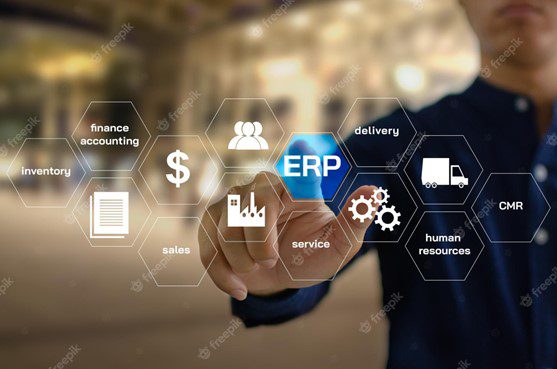
Introduction to ERP systems in project management
In today’s fast-paced business environment, effective project management is crucial for the success of any organization. With the increasing complexity of projects and the need for seamless collaboration between teams, businesses are turning to ERP systems to streamline their project management processes. ERP, or Enterprise Resource Planning, systems provide a comprehensive solution that integrates various aspects of project management, such as inventory management, accounting, and collaboration, into a single platform.
ERP systems offer numerous benefits for project management, including improved efficiency, enhanced collaboration, and better decision-making. By centralizing project data and automating key processes, ERP systems enable teams to work more efficiently, reducing the time and effort spent on manual tasks. Moreover, these systems foster collaboration by providing real-time access to information and facilitating communication between team members. This results in better coordination and improved productivity throughout the project lifecycle.
Benefits of using ERP systems in project management
Implementing an ERP system in project management can bring a multitude of benefits to organizations. One of the key advantages is improved efficiency. By automating repetitive tasks and providing real-time visibility into project data, ERP systems eliminate the need for manual data entry and reduce the risk of errors. This allows project managers and team members to focus on value-added activities and make informed decisions based on accurate and up-to-date information.
Another significant benefit of using ERP systems in project management is enhanced collaboration. With all project-related information stored in a centralized database, team members can access and share data in real-time, regardless of their location. This promotes effective communication, facilitates knowledge sharing, and enables teams to work together seamlessly. Additionally, ERP systems often include built-in communication tools, such as instant messaging and project management dashboards, which further support collaboration among team members.
Furthermore, ERP systems provide organizations with better visibility and control over their projects. Through real-time reporting and analytics, project managers can monitor key performance indicators, track progress, and identify potential bottlenecks or issues. This enables proactive decision-making and ensures that projects stay on track, meet deadlines, and stay within budget. By having a comprehensive overview of projects, managers can allocate resources effectively and make data-driven decisions to optimize project outcomes.
Key features of ERP systems for project management
To fully harness the power of ERP systems in project management, it is essential to understand their key features and functionalities. One such feature is the integration of inventory management. ERP systems offer inventory management modules that allow businesses to track and manage their inventory levels in real-time. This ensures that project teams have access to the necessary materials and resources when needed, minimizing delays and optimizing project timelines.
Another important feature of ERP systems in project management is accounting integration. By integrating accounting functionalities, ERP systems enable businesses to streamline financial processes, such as budgeting, invoicing, and expense tracking. This not only simplifies financial management but also provides project managers with real-time insights into project costs, profitability, and cash flow. Such visibility allows for better financial planning and ensures that projects are financially viable.
Moreover, ERP systems often include collaboration tools that facilitate communication and document sharing among project team members. These tools may include project management dashboards, task assignment features, and instant messaging platforms. By centralizing communication within the ERP system, teams can collaborate effectively, share information, and stay updated on project progress. This enhances transparency and accountability, resulting in improved teamwork and project outcomes.
Case study: Xorosoft ERP – A comprehensive solution for project management
One notable ERP solution for project management is Xorosoft ERP. With its robust features and user-friendly interface, Xorosoft ERP offers a comprehensive solution for organizations looking to enhance efficiency and collaboration in their project management processes. The system integrates seamlessly with various project management modules, including inventory management, accounting, and collaboration tools, providing a unified platform for project teams.
Xorosoft ERP’s inventory management system allows businesses to track and manage their inventory in real-time. From procurement to stock control, the system provides visibility into inventory levels, ensuring that project teams have the necessary resources at their disposal. This minimizes delays and enables projects to stay on schedule.
In terms of accounting, Xorosoft ERP offers advanced financial management capabilities. The system automates budgeting, expense tracking, and invoicing processes, providing real-time insights into project costs and profitability. This allows project managers to make informed decisions and ensures that projects remain financially viable.
Furthermore, Xorosoft ERP includes collaboration tools that enable effective communication and document sharing among project team members. The system offers project management dashboards, task assignment features, and instant messaging platforms, fostering collaboration and promoting teamwork. With Xorosoft ERP, project teams can work together seamlessly, enhancing productivity and project outcomes.
Streamlining inventory management with ERP systems
Efficient inventory management is crucial for successful project management. ERP systems play a vital role in streamlining inventory management processes, ensuring that project teams have the necessary materials and resources at their disposal.
One of the key features of ERP systems for inventory management is real-time tracking. With the integration of inventory management modules, ERP systems provide real-time visibility into stock levels, allowing project teams to monitor inventory levels and make informed decisions. This prevents stockouts, minimizes delays, and optimizes project timelines.
Additionally, ERP systems offer features such as automated reordering and supplier management. By setting up automated reordering rules, businesses can ensure that inventory is replenished in a timely manner, reducing the risk of stockouts and unnecessary downtime. Moreover, ERP systems enable organizations to manage their suppliers effectively, ensuring that they have reliable partners for timely delivery of materials and resources.
Furthermore, ERP systems provide businesses with accurate and up-to-date inventory data. This allows project teams to analyze inventory trends, identify potential issues, and optimize inventory levels. By having a comprehensive overview of inventory, organizations can avoid overstocking or understocking, leading to cost savings and improved project efficiency.
Improving accounting processes with ERP systems
Efficient accounting processes are essential for effective project management. ERP systems offer integrated accounting functionalities that streamline financial processes, ensuring accurate and timely financial information.
One of the key features of ERP systems in accounting is automated invoicing and expense tracking. By automating these processes, ERP systems reduce manual data entry and minimize the risk of errors. This improves efficiency and ensures that project teams have accurate financial data for decision-making.
Moreover, ERP systems provide real-time insights into project costs and profitability. By integrating accounting with project management, ERP systems enable project managers to monitor project expenses, track profitability, and make informed decisions. This ensures that projects remain financially viable and helps organizations optimize their financial resources.
Furthermore, ERP systems simplify budgeting processes. By automating budget creation, ERP systems save time and effort for project managers. The system allows for easy budget tracking and provides real-time visibility into budget variances, enabling proactive decision-making and ensuring that projects stay within budget.
Integrating Xorosoft ERP into your project management workflow
Integrating Xorosoft ERP into your project management workflow can significantly enhance efficiency and collaboration within your organization. The user-friendly interface and comprehensive features of Xorosoft ERP make it an ideal choice for organizations looking to streamline their project management processes.
To integrate Xorosoft ERP into your project management workflow, follow these steps:
-
Assess your project management needs: Identify the key pain points and requirements of your project management processes. This will help you determine how Xorosoft ERP can address your specific needs.
-
Customize the system: Xorosoft ERP offers customization options to tailor the system to your organization’s requirements. Customize the system to align with your project management workflows, ensuring a seamless integration.
-
Train your team: Provide comprehensive training to your project team members to ensure they are familiar with the features and functionalities of Xorosoft ERP. This will enable them to utilize the system effectively and maximize its benefits.
-
Set up data integration: Integrate Xorosoft ERP with your existing systems, such as CRM or procurement software, to ensure smooth data flow between different departments. This will eliminate data silos and enhance collaboration across teams.
-
Monitor and evaluate: Regularly monitor the performance of Xorosoft ERP within your project management workflow. Evaluate its impact on efficiency, collaboration, and project outcomes. Make any necessary adjustments or improvements to optimize its usage.
By following these steps, you can seamlessly integrate Xorosoft ERP into your project management workflow and harness its power to enhance efficiency and collaboration within your organization.
Choosing the right ERP system for your project management needs
When selecting an ERP system for your project management needs, it is essential to consider certain factors to ensure the system aligns with your requirements and objectives. Here are some key considerations when choosing the right ERP system:
-
Scalability: Ensure that the ERP system can accommodate your organization’s growth and handle increasing project complexities. It should be able to scale along with your business needs without compromising performance or functionality.
-
Integration capabilities: Assess the integration capabilities of the ERP system. It should be able to integrate with existing software and systems within your organization, such as CRM or procurement systems. This will ensure seamless data flow and eliminate data silos.
-
Customization options: Look for an ERP system that offers customization options to tailor the system to your organization’s specific project management workflows. This will enable a seamless integration and enhance user adoption and satisfaction.
-
User-friendliness: Consider the user-friendliness of the ERP system. It should have an intuitive interface and provide easy navigation and accessibility to project data. This will ensure that project team members can utilize the system effectively, enhancing collaboration and productivity.
-
Vendor support and reputation: Evaluate the vendor’s support offerings and reputation in the market. Ensure that the vendor provides comprehensive support, including training, implementation, and ongoing technical assistance. A reputable vendor with a track record of successful ERP implementations is more likely to deliver a reliable and effective solution.
By considering these factors, you can make an informed decision and choose the right ERP system that aligns with your project management needs, enhancing efficiency and collaboration within your organization.
Implementing ERP systems in your organization
Implementing ERP systems in your organization requires careful planning and execution to ensure a successful deployment. Here are some key steps to follow when implementing ERP systems:
-
Define project objectives: Clearly define the objectives and goals of implementing an ERP system. Identify the pain points and challenges within your project management processes that the ERP system should address. Having a clear vision will guide the implementation process and ensure alignment with your organization’s strategic objectives.
-
Select a project team: Assemble a dedicated project team comprising representatives from different departments within your organization. This team will be responsible for overseeing the implementation process, coordinating with the ERP vendor, and ensuring effective communication and collaboration among stakeholders.
-
Conduct a thorough requirements analysis: Conduct a comprehensive analysis of your organization’s requirements and processes. Identify the key functionalities and features that the ERP system should have to meet your project management needs. This will serve as the basis for selecting the right ERP system and customizing it to align with your workflows.
-
Choose the right ERP system: Based on your requirements analysis, select the ERP system that best fits your project management needs. Consider factors such as scalability, integration capabilities, customization options, and user-friendliness, as discussed earlier in this article.
-
Plan the implementation process: Develop a detailed implementation plan that outlines the key milestones, timelines, and responsibilities. This plan should include tasks such as data migration, system configuration, user training, and testing. Ensure that the plan is realistic and achievable, considering the resources and expertise available within your organization.
-
Train your team: Provide comprehensive training to your project team members and end-users. This will ensure that they are familiar with the functionalities of the ERP system and can utilize it effectively. Training should cover both technical aspects and how to incorporate the ERP system into their daily project management workflows.
-
Test and validate: Conduct thorough testing of the ERP system before going live. Test all functionalities, integrations, and workflows to ensure that the system performs as expected and meets your project management requirements. Validate the system against your predefined objectives to ensure alignment.
-
Go live and monitor: Once the testing phase is complete, go live with the ERP system. Monitor its performance closely during the initial period and address any issues or challenges that arise. Regularly evaluate the system’s impact on efficiency, collaboration, and project outcomes, and make any necessary adjustments or improvements.
By following these steps, you can successfully implement an ERP system in your organization, enhancing efficiency and collaboration within your project management processes.
Conclusion: Harnessing the power of ERP systems for efficient project management
In conclusion, ERP systems offer a powerful solution for enhancing efficiency and collaboration in project management. By integrating various project management modules, such as inventory management and accounting, into a single platform, ERP systems streamline processes, improve decision-making, and foster collaboration among project teams.
The benefits of using ERP systems in project management are numerous. They improve efficiency by automating tasks, enhance collaboration by providing real-time access to data, and offer better visibility and control over projects. Additionally, ERP systems offer key features such as inventory management and accounting integration, supporting seamless project execution and financial management.
Xorosoft ERP is a comprehensive solution that exemplifies the power of ERP systems in project management. With its robust features, user-friendly interface, and seamless integration, Xorosoft ERP enables organizations to streamline their project management processes, enhance efficiency, and foster collaboration.
To harness the power of ERP systems in your project management, it is crucial to choose the right ERP system that aligns with your requirements, integrate it seamlessly into your workflows, and implement it effectively. By following the steps outlined in this article, you can optimize your project management processes and achieve efficient and collaborative project outcomes.
Book a Demo with Xorosoft to explore how their ERP solution can transform your project management processes and experience the power of efficient collaboration and enhanced efficiency.


